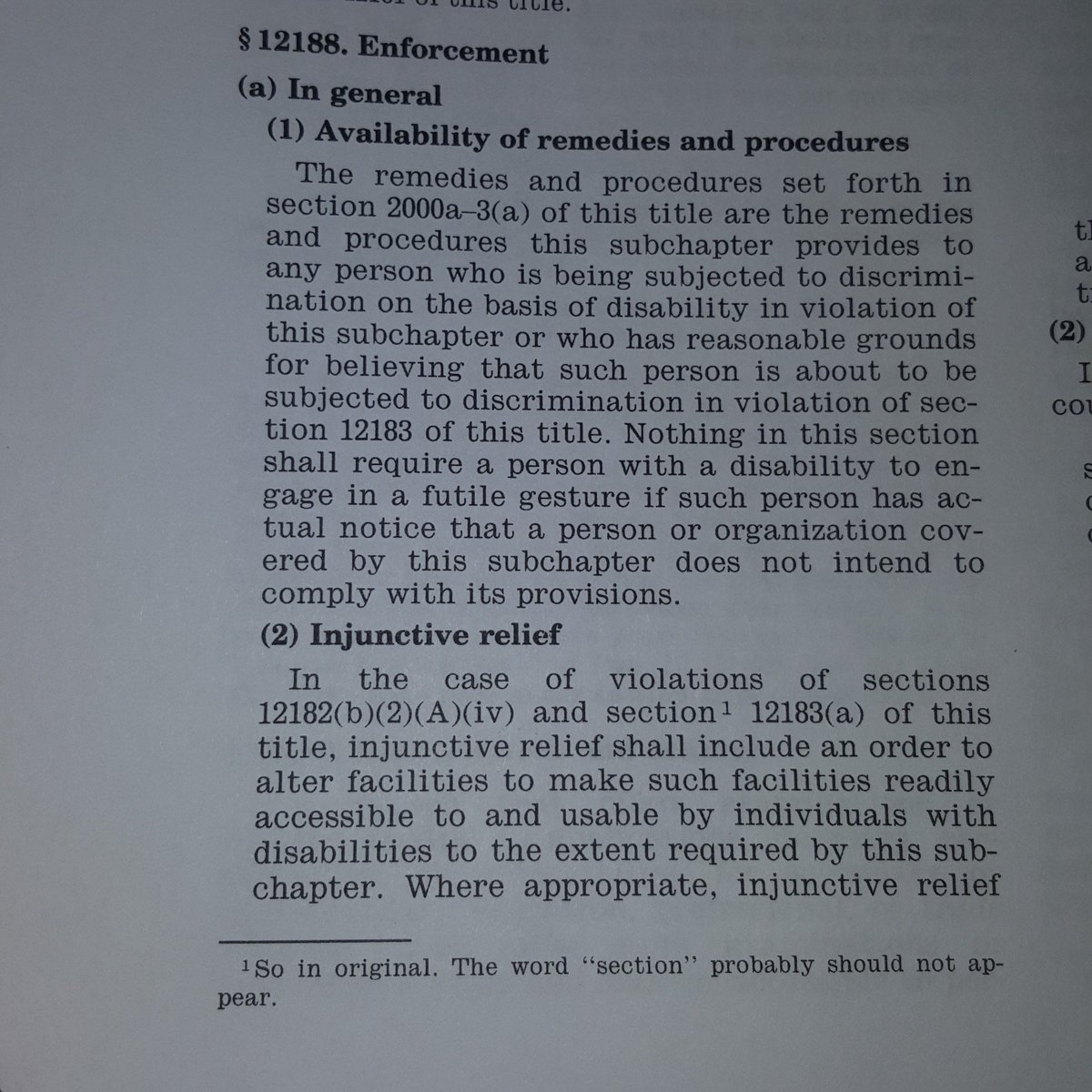Promotes education? Sounds good
Clarify? Well, seems reasonable
Notice and cure? That seems like a prudent course
Why are people all upset?



I like a short bill, but dang, MORE WORDS.




It adds the (B)...which is a problem, we'll get to that.
Subchapter is changed to title, section number has changed, but it may be the same language.
The key word here is "futile".
Before we get to that, let's sidebar.

Demand more.
Demand proficiency in bill-reading and a commitment to read every single thing they vote on.
Every. One.
Demand law that is thoughtful & well-considered.
Let's focus on "futile gestures".
But that sounds reasonable? Are the owners of "existing" public accomodations psychic? Why should they have to figure out what is wrong?

I'm 41 now, I wasn't even old enough to drive.
We were still excited about tearing walls down instead of building them in 1990.
@PearlJam was just forming.
Where were you in 1990?
More importantly, how big was your hair?
Merely getting a donut in NYC can be a 5 hour debacle in a wheelchair.
1990
1990
1990
1990
1990
1990
1990
1990
1990
Seriously, why are we even doing this? 1990
1990
1990!
Step 1 - provide written notice to the owner or operator...let's just mull on this for a minute.
Putting something in writing alone can be a futile gesture for many disabled folks. What if you have cognitive challenges? What if you can't write?


WTF is substantial progress? Who decides that? When does it have to be done?
Imagine a disabled person being held to similar or higher standards.


There is no affirmative requirement to respond if the letter is insufficient.
There is no requirement to say why the letter is insufficient.
1. Detail the circumstances you were actually denied access
2. Property address
3. Specific section of the ADA act being violated
4. Whether or not you requested assistance removing the barrier
5. Whether or not the barrier is permanent
Let me start with how much I love mediation in a general sense. It can save costs and lead to much greater outcomes. We have mandatory mediation in many types of cases in Maine.

Seriously, WHO WROTE THIS?
It's written like YA fiction, all light and fluffy but to make you feel like you are reading a deep book.
It's a bad bill.
There is nothing urgent about this 1990 law needing repair so desperately as to cause such sloppy work.
Share, like, comment, RT.
Help me get to 10,000 followers.
Make a campaign sign for a virtual sign party.
Please don't give me $.
But DO participate in #Maineraising! Give to food banks in #ME02
Get educated.
Get involved.
Ask questions.
Challenge your representatives.
Vote wisely.
Deserve the government we want.
/end
#mepolitics #ReadtheBill #bond2018





















